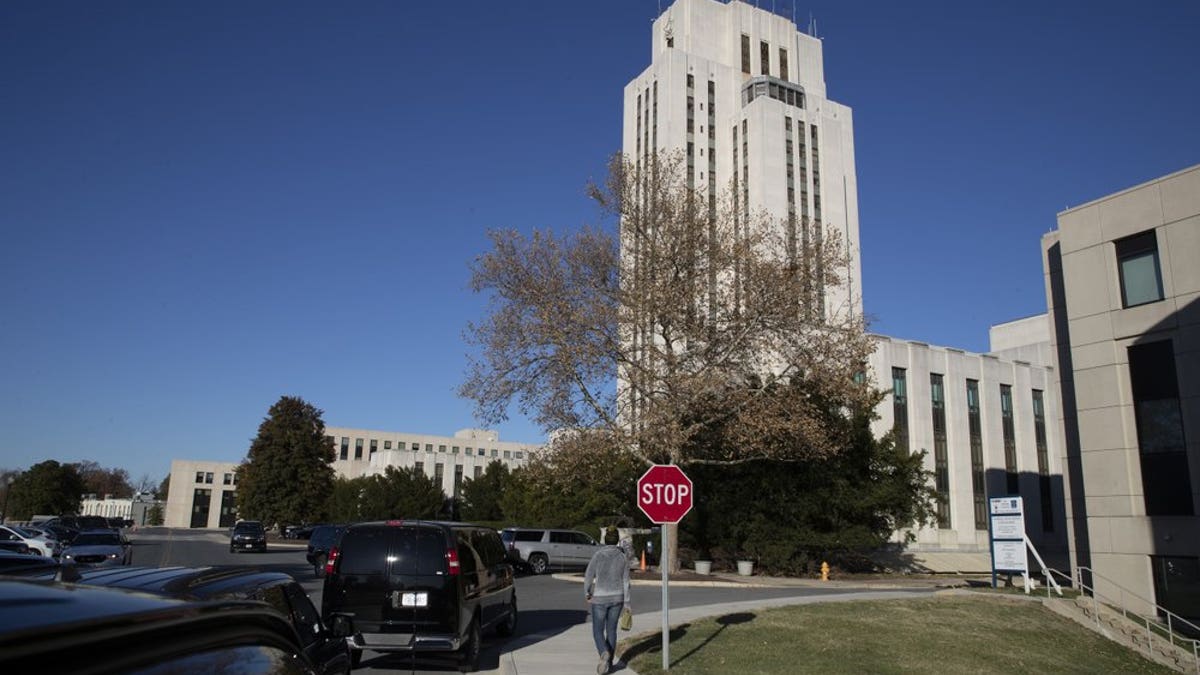Health and safety concerns surrounding the presidency
Samuel Skinner, former chief of staff to President George H.W. Bush, on proper protocols to be taken surrounding the health and safety of the president and his administration.
President Donald Trump was moved to Walter Reed National Military Medical Center after testing positive for the coronavirus.
First opened in 1909 as the Walter Reed General Hospital, the facility has treated hundreds of thousands of injured soldiers through World War II, the Korean War, the Vietnam War, and the wars in Afghanistan and Iraq. The Walter Reed center primarily serves to provide care for the uniformed services and their families, but it holds the distinct honor of also treating virtually every president since Franklin D. Roosevelt in the 1940s – from Richard Nixon’s viral pneumonia to Ronald Reagan’s polyp removal.
Melania Trump visited Walter Reed for kidney surgery in 2018, and President Trump has visited the hospital at least nine times since taking office. Now, he has moved to Walter Reed as a precautionary measure, where he will remain under observation and receive treatment.

The motorcade of President Donald Trump waits at Walter Reed National Military Medical Center, Saturday, Nov. 16, 2019, in Bethesda, Md. (AP Photo/Manuel Balce Ceneta)
How long the president will remain at Walter Reed is unclear, but it is clear he will receive historically trusted treatment and can remain optimistic.
Here are some things to know about Walter Reed – a medical center that has long been dubbed the "President’s Hospital.”
The president can easily work even while in hospital
The center includes a suite of offices for the president, which is equipped for him to work and perform his duties, but the quarters are far more than simply functional.
The suite is equipped with a kitchen, conference room and sleeping quarters so the White House physician can be present at all times. The president can host general officers and Cabinet-level officials so that he remains on top of business.
Only three times has a president invoked the 25th Amendment's section 3 to transfer power to the sitting vice president, and each time has been when the president has undergone medical procedures – usually at Walter Reed.
TRUMP 'DOING VERY WELL' AND HAS NO DIFFICULTY BREATHING, MEDICAL TEAM SAYS
Officials insisted that the hospital perform JFK’s autopsy
The facility has also held some unfortunate honors as well, such as serving as the site of President John F. Kennedy’s autopsy.
Doctors assumed that the autopsy would occur at the Armed Forces Insitute of Pathology – some five miles away – but JFK's personal physician insisted that the body go to Bethesda.
Later, it came to light that Jackie Kennedy insisted on Walter Reed because the core facility had been a Navy hospital, and JFK had served in the Navy, according to the Chicago Tribune.
REGENERON CO-FOUNDER ON THE ANTI-BODY COCKTAIL TRUMP IS TAKING TO FIGHT CORONAVIRUS
The hospital maintains a unique leadership – even among military hospitals
In 2005, Congress mandated that Walter Reed Army Medical Center and the National Navy Medical center integrate, according to the Antlanta Journal-Constitution. The facilities combined in 2011, migrating the Army facilities to the Navy campus and forming Walter Reed Bethesda.
Merging two military branches into one facility created a distinct set-up in which an Army colonel serves as director and a Navy master chief serves as the command master chief.
Even Air Force leadership is integrated throughout the chain of command.
TRUMP PRAISES STAFF AT WALTER REED, SAYS HE IS 'FEELING WELL' AS HE FIGHTS COVID-19
The center is named after a man who made an important medical discovery
Walter Reed General Hospital opened on May 1, 1909, named after an Army doctor and leading researcher who discovered that yellow fever was transmitted via mosquitos.
Reed died in an Army hospital at Fort McNair in Washington, D.C., in 1902 following a bout of appendicitis and surgery. The doctor that operated on him, William Borden, was also the commander of the hospital, and he wanted to honor his friend.
Borden wanted to build a new hospital, so following Reed's death, Borden tried to petition Congress for funding. He did not get his chance until he treated the doorman for the Senate, who had been a Civil War vet, and learned who he needed to speak to in order to finally get his hospital.
LINDSEY GRAHAM SAYS AMY CONEY BARRETT'S CONFIRMATION SCHEDULE TO PROCEED AS PLANNED ON OCT. 12
The president is not the only high-profile patient to use Walter Reed
Members of Congress and justices of the Supreme Court have also received treatment at Walter Reed.
In addition, several high-profile individuals have died there – though not usually while in office – including President Dwight Eisenhower, Gen. John Pershing, Gen. Douglas MacArthur and Gen. George Marshall, according to NPR.
CLICK HERE FOR THE FOX NEWS APP
Those more maudlin occurrences are outliers compared to the long history of success that the center has enjoyed in service to the White House.
The Associated Press contributed to this report.





